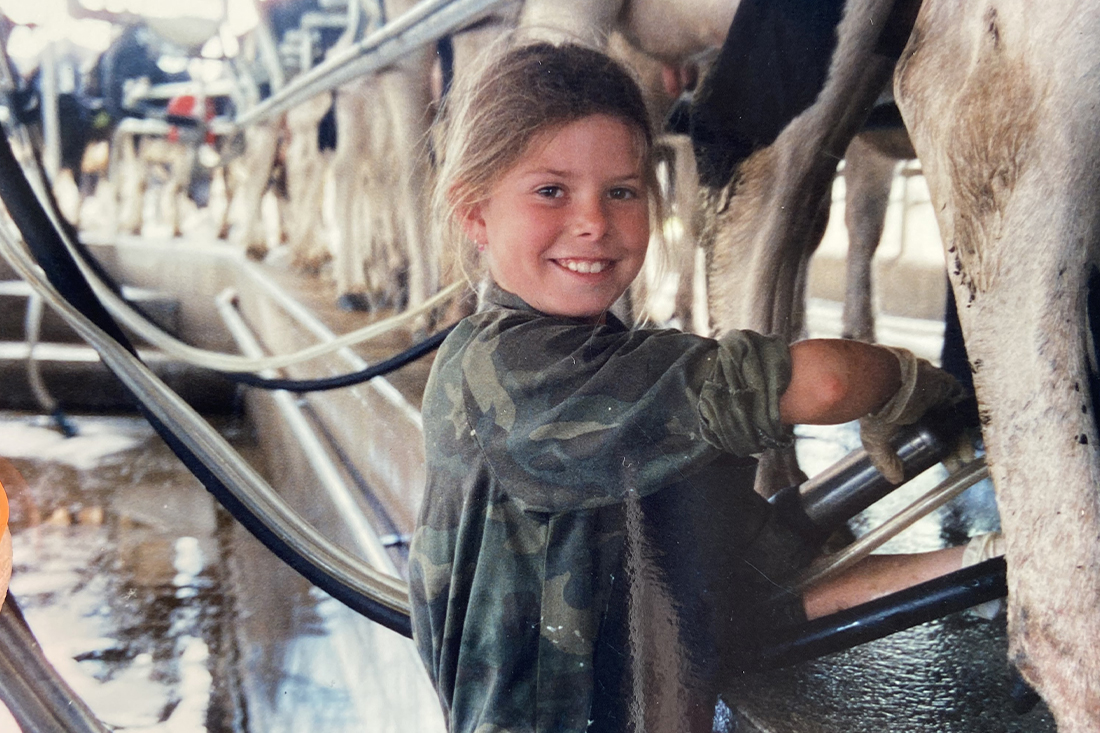We talk to Waikato-based Milk Quality Manager Paige McLaggan about continual improvement.
The Co-op’s Milk Quality Managers work nationwide, providing farmers with independent advice on reducing bulk somatic cell counts, improving efficiency in the milking shed, and increasing productivity. We talk to Waikato-based Paige McLaggan about the role.
I live on the dairy farm that I grew up on, in Taupiri. I’m pretty sure I started milking cows when I was around the age of seven. After finishing high school, I became a qualified vet nurse and worked for a mixed animal practice in Morrinsville before venturing on my OE. This job fuelled my interest in dairy farming and animal health, and when a job came up at the Co-op in the milk quality team, I jumped at it.
The dairy industry provides so much to this country, and I love being a part of it.
I’ve now been with Farm Source for around six years. It’s a pretty diverse role. When I started, I was working predominantly with lower-performing farms. Now, we’re getting a lot more proactive farmers who are performing at a high level but still want to improve further. There has been a huge improvement across the Co-op, particularly with farmers becoming more aware of reducing emissions and wanting to run more efficient businesses.
There are over 1000 farms in my area, stretching from Aria up to South Auckland. Depending on the time of season, I’ll either be in the office reporting or out on-farm conducting milk quality and efficiency visits. I enjoy the on-farm visits, being in the shed observing and taking notes, checking machines and current practices – all the information you can’t get just from a conversation. I’ll spend between one to three hours on a farm, talking with the farmers and their teams about the farm’s goals, what they’re currently doing, and then identifying any opportunities where they can improve. I’m pretty pragmatic, and I know there is no easy, one-size-fits-all approach.
I won’t recommend something if it’s not relevant to a farm, nor if it’s not practical for them to implement.
With milk quality, improvements take time. You’re not going to see somatic cell counts drop overnight. Some improvements take seasons, and it’s important that farmers are aware of that, particularly efficiency measures. Above all, it’s important to have buy-in from everyone. When you can get good practices in place and everyone is on board, that’s when you get the biggest gains.
I get to work alongside some of the most proactive, high-performing farmers and support others along their journey. It can be extremely satisfying seeing things turn around and improve on farms, especially in challenging circumstances.
I am passionate about maintaining not only the Co-op’s reputation, but the dairy industry as a whole. Working with animals is my happy place. I truly believe the more care and effort you put into your cows, the more they will give back to you, and you will reap the benefits. Living and working on our family’s farm and relief milking for other farms allows me to stay connected with the challenges facing farmers, whether that be waiting for the weather gods to play ball or keeping up with technology (which my dad isn’t afraid to tell me about). We’re all in it together, and I get it, not every day is smooth sailing.
Farmers don’t give themselves enough credit for how resilient and adaptable they truly are. I see it every day. The best farms I visit are those that are always looking to improve and are open to having fresh eyes to identify new opportunities.
Your Milk Quality Manager will provide free, independent advice on potential opportunities to reduce your farm’s bulk somatic cell count and/or to save you milking time in the shed. After your visit, you will receive a detailed report outlining our evaluation and advice.
